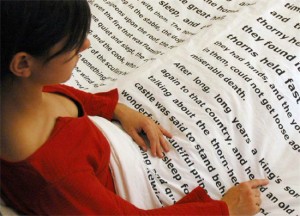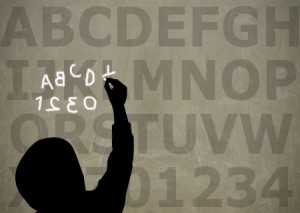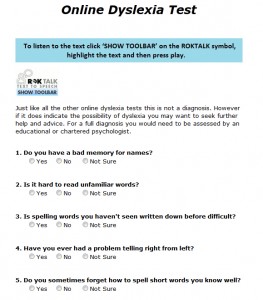 I began reading as a child, as most avid readers do. I talked about it in a previous blog, having just recently ordered a copy of an old childhood favorite, Nunzio, from a used bookstore through ABE Books.
I began reading as a child, as most avid readers do. I talked about it in a previous blog, having just recently ordered a copy of an old childhood favorite, Nunzio, from a used bookstore through ABE Books.
Until I started talking with friends later in life, however, I had no numbers with which to compare how many books I read a year or how long it took me to read one book. Then as years went by I would hear someone talk about reading a book in a day or two. I then became great friends with a voracious reader and the numbers of books he read per year staggered me. I mean, other than writing, there was nothing I enjoyed more than curling up with a good book. Yet early in adulthood I’d be lucky to finish 1-2 books per year. I would start many, but one of the main things I hated about reading is that it made me tired. We’re not talking boring textbooks either—the book could be a total page-turner and after just a few pages I would start to yawn and, after forcing a few more pages, put the book down.
 I normally read in bed, so I just assumed that was my problem. However it would not only happen late at night or when I was already tired. Our habit is to watch television or read for an hour or two before sleep—we intentionally go upstairs early for just that reason. We have for years. Then I began to notice the speed with which my wife read. I would print out a page of email or something else I had written and she would read it so quickly I’d say “come on, you didn’t really read that” and she’d tell me everything it was about, etc. I finally chalked it up to my being a writer and that I liked to savor the words (on the Kindle, I do stop to highlight particularly well-written phrases by my favorite authors).
I normally read in bed, so I just assumed that was my problem. However it would not only happen late at night or when I was already tired. Our habit is to watch television or read for an hour or two before sleep—we intentionally go upstairs early for just that reason. We have for years. Then I began to notice the speed with which my wife read. I would print out a page of email or something else I had written and she would read it so quickly I’d say “come on, you didn’t really read that” and she’d tell me everything it was about, etc. I finally chalked it up to my being a writer and that I liked to savor the words (on the Kindle, I do stop to highlight particularly well-written phrases by my favorite authors).
Flash back in time. I was a straight-A student in high school and my cousin was struggling (I believe even to the point of being at risk of failing out of high school). Then he was diagnosed as being dyslexic and began therapy. I was a year ahead of him and after graduation was accepted to a very selective private college in Iowa (Grinnell College). The next year, my cousin (an Iowan, as I had been until age twelve) applied and was accepted. His discovering and working on his dyslexia had allowed him to raise his GPA to straight-A’s and that, combined with an excellent score on the ACT exam, got him into the same school (we were able to play football together, too).
 I, however, found every class I took, too hard. Calculus, Computer Science, Physics—all my favorite subjects in high school—I was pulling D’s and F’s. Struggling. I was eventually expelled from school for my poor grades after my sophomore year (ironically it wasn’t the GPA, it was the fact that I failed two classes out of five in one semester). I had never taken a single book home in high school. I just got it. Algebra, Physics, Chemistry, Pre-Calc—the teacher would teach the lesson, I would complete the homework (usually right there in the last fifteen or twenty minutes of class) and ace all my exams. I just assumed my college problems were because I “never learned how to study”. So I went back to the University of Wyoming, did better (much easier class load), but by then I was completely disenfranchised with college altogether.
I, however, found every class I took, too hard. Calculus, Computer Science, Physics—all my favorite subjects in high school—I was pulling D’s and F’s. Struggling. I was eventually expelled from school for my poor grades after my sophomore year (ironically it wasn’t the GPA, it was the fact that I failed two classes out of five in one semester). I had never taken a single book home in high school. I just got it. Algebra, Physics, Chemistry, Pre-Calc—the teacher would teach the lesson, I would complete the homework (usually right there in the last fifteen or twenty minutes of class) and ace all my exams. I just assumed my college problems were because I “never learned how to study”. So I went back to the University of Wyoming, did better (much easier class load), but by then I was completely disenfranchised with college altogether.
With one semester left in completing a Finance/Economics degree, an opportunity out in California arose for me to work for three or four times the hourly wage I was earning working crappy jobs in college. I dropped out, never to ultimately finish college (the company I started contracting with was the same one with which I just finished my twenty-three year career).
 Recently I started to wonder about dyslexia. Ironically, my first Kindle seemed to solve the sleepiness issue. Something about the e-ink technology, presentation, etc. allowed me to finally read for hours on end. I could now, for the first time in my life, finish a book! Still nowhere near as fast as other readers, like my wife. We’d sit in bed, each reading our Kindles, and her clicks to the next page would start to eat away at me (I could hear that they were 1.5 times as fast as mine and it would soon be the only thing I could hear).
Recently I started to wonder about dyslexia. Ironically, my first Kindle seemed to solve the sleepiness issue. Something about the e-ink technology, presentation, etc. allowed me to finally read for hours on end. I could now, for the first time in my life, finish a book! Still nowhere near as fast as other readers, like my wife. We’d sit in bed, each reading our Kindles, and her clicks to the next page would start to eat away at me (I could hear that they were 1.5 times as fast as mine and it would soon be the only thing I could hear).
I bought a Kindle Fire a few months back. I love it. It was actually a reversal of my own stance on the Kindle (or any eReader), believing them to be utilitarian and not needing things like web browsing, email-reading, etc. PLUS I knew the Fire was back-lit, not e-ink technology. But I am a tech-geek. And I adore high resolution. So I caved. And I love it. But guess what? My reading speed has slowed. Not as much as with an actual book, but the length of time I can read and the speed at which I read are noticeably slower. I’ve also noticed the tiredness creeping back in, though apparently not as much as with actual books.
 The other night I took an online test for dyslexia, one of those that list ten or so symptoms and you try to figure out if you have any and how many. I seriously think I might have dyslexia. At least to a degree (there seems to be a spectrum of different symptoms and severity levels). Now I have to try and figure out where you go to really get tested and, more importantly, where to figure out a program to help.
The other night I took an online test for dyslexia, one of those that list ten or so symptoms and you try to figure out if you have any and how many. I seriously think I might have dyslexia. At least to a degree (there seems to be a spectrum of different symptoms and severity levels). Now I have to try and figure out where you go to really get tested and, more importantly, where to figure out a program to help.
There is a part of me that is holding back a growing excitement. What if it’s true? What if I could get better?
Now to answer the question some of you may be wondering—does this affect my writing?
Yes, believe it might. There are certain words I substitute for others (where computer keys are not close on the keyboard, and not the typical “you instead of your”—so it’s really not a typo; the words will have completely different meanings). Thing and think, come to mind. But there are ones even stranger and less “common”.
It seems strange, perhaps, that I waited until I was forty-seven to wonder about this possibility, particularly with my cousin’s history. I just didn’t do the math (no pun intended). I find myself on the verge of something potentially life-altering. I’ve considered speed-reading courses. I’d rather fix the core issue, assuming there is one.
Are there any of you out there with dyslexia information or experience? If so, you can email me at rsguthrie(at)gmail(dot)com. I’d be honored to hear your story and any advice you might have.
To finish the story, my slow-reading and inability to finish as many books as others has never stopped me from buying them (both brick and mortar and Kindle). I just always told myself, one day when I am laid up with a broken leg, or completely retired, I’ll never run out of books. But that has given me little true comfort.
I am a writer. I love to read; I need to read.
Maybe I’m onto something.



Interesting. My brother, Steve, is dyslexic and found that what works for him is wearing yellow-tinted glasses. Somehow that color fools the brain into seeing words as they are written, bypassing the dysfunction. Dunno the mechanics of that…somewhat of a mystery. He won’t read anything without those specs on. I don’t know if there are different forms of dyslexia, perhaps there are, but you might try it. Can’t hurt.
That might mesh with my experience of the e-ink being much better for me. It literally made the difference of a few minutes or reading to hours. From the little I’ve read I know there is a whole spectrum of severity, at least, but the test would suggestion varying symptoms (some of which I don’t have at all). The first question on the test I took (if you didn’t look at it) was “Do you find it difficult to remember names?”. That is truly my worst affliction—I never forget a face but cannot remember a name five seconds later.
You may well have dyslexia, but I think you were also right when you identified you had not ‘learned to study’ when you went to college. I was the same – junior high I never studied, I just did the work, and got excellent grades anyway. But I got my wake up call when I failed my first maths test as a senior. 33%. Unheard of. The teacher even apologised to me. That was the kick up the rear I needed, and I studied (probably excessively) for the next 7 years (2 years senior high, 5 years college) and got great grades.
So I think if you have dyslexia, it was only half the problem at college, but perhaps one that needed to be solved before you could learn to study.
Oh yes, it was definitely a combination of the two. AND partying. But now that I look back, even in those moments where I was knuckled down, I could not concentrate for but a few minutes and I was ready for bed (no foreign substances involved). 🙂
I was always a quick reader, to the extent that they put me in grade eight when I was tested in grade six for reading, comprehension, etc. But there are times when I seem to go back and forth, back and forth, and it sometimes takes me a while to get it. I was skipping back and forth through one of the paragraphs of your post. Because it was easy for me to pass tests, first of all, I thought I was smarter than the other kids, and secondly, it got the attention of the schoolyard bullies! I hope you find what you are looking for, and good luck to you. The ability to read is a great gift, and we should all be grateful for it.
I am thankful I am just slower than, perhaps, average (whatever that is) but some of it seems to be practice, too (i.e. the more I read, the faster I become, all other things being equal or static). Thanks for the well-wishes. I do plan to see about testing, if for no other reason than to know (and to gain some knowledge into what might help).
It’s not how fast or how slow you read, it’s whether you enjoy and digest every word that’s put on the page. Life is not a speed read.
Amen to that. But when the difference is being able to read 1-2 books per year versus several dozen, I want to enjoy as many as I can. I do savor words (and will always stop to admire them along life’s path), but even though we don’t want to sprint through life and miss everything, pained inertia is no good either. 😉
You might try these guys: http://learnyourway.biz/
I spoke with them at a conference and was impressed by their method. Looking into it for our adult son who has some issues with dyslexia.
Thanks, Lynn!
I think most who can read a book in a day or two either dont watch tv, dont work or on holiday or they dont have a life. It’s insane speed.
My reading amounts to sticking a book in the toilet and anytime i crap or pee read then.
I’m too busy writing, working, with kids or sleeping to sit around for hours on end reading. Books are just not as thrilling as a movie at least to me and I have read some great books over the years.
I don’t have much experience with dyslexia but I have heard there are many ways of coping. I think reading fast can be helpful in a lot of ways but it isn’t essential. I’d like to learn to speed read but tend to forget to practice.
Me either…but I have heard/read much of the same: that for every “symptom” there are now ways to deal with it! Thanks for the comment, Sonia. Have a great weekend. 🙂
I completely identify with this article. I was a slightly late reader and was in the dunce’s class. Suddenly I ‘got’ reading and took off. I was moved up to a higher stream. But this was in primary school. I got into grammar school, but never did as well as I should. I knew I was intelligent but, particularly when it came to exams I had big difficulties with being able to recall facts and figures. I left age 16 and went to art school. I am now a writer and have four books published. But it was only when researching dyslexia for a character in by book TORN that I began to tick the boxes. I ticked so many that I had the revelatory moment described above. That’s the reason!!!! I am not a VERY slow reader but I am slower than many of my friends, and I cannot recall what I read the night before when I pick up the book the next day. I have to refresh my memory by going back a few pages. It can get as bad as this – if people ask me what I am reading at the moment, I frequently can’t even tell them that, let alone what the plot is about.
Wow, thank you for sharing your incredible experience. Have you looked into any of the therapies? I have not; just wondering. From what I’ve seen they can retrain most if not all symptoms. That’s amazing that it took until the research to discover that you met so much of the criteria. I never thought about it either, obviously, until much later in life. Greatest of fortune to you, Gilli. 🙂